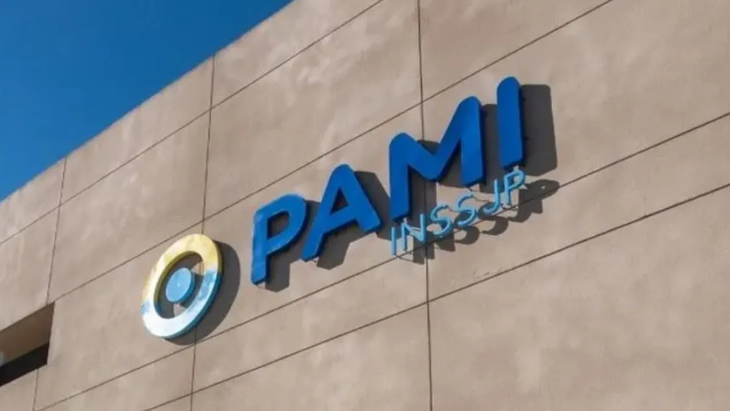Following the changes in the agency’s vademecum, learn about the remedies provided by the National Institute of Social Services for Retirees and Pensioners this month and those that are no longer covered.
The National Institute of Social Services for Retirees and Pensioners (PAMI) offers a 100% coverage on a group of medications in September 2024, aimed at treating chronic and prevalent diseases among its members. In parallel, the organization made a series of adjustments and modifications to the remedies commonly used by older adults, so this month the free provision of several drugs was eliminated, which began to have a discount of 80% 60% or 40%.
The content you want to access is exclusive for subscribers.
The agency realized that many retirees and pensioners had difficulty accessing all the medications and so they chose the most necessary one and only took that one. Now, in order to stop this situation, it was announced that people who have to take one or more medications for a long time will be able to access them for free.


PAMI: Which medications will be 100% covered in September?
As indicated PAMI on their official site, the medicines that must be covered 100% this month are the following:
Chronic treatments for prevalent diseases
- It includes medications for common and chronic conditions, selected for their safety and effectiveness. Some examples might include treatments for high blood pressure, high cholesterol, chronic respiratory problems, and more.
Diabetes
- Insulins: all the insulins needed for treatment.
- Hypoglycemic agents: oral medications to control blood sugar.
- Test strips: used to measure blood glucose levels.
Oncology and special treatments
- Oncologic: drugs to treat different types of cancer.
- Oncohematological: for oncohematological treatments, including Lenalidomide.
- Hemophilia: specific medications for this condition.
- Hepatitis B and C: treatments to combat chronic hepatitis.
- Antiretrovirals: to treat HIV.
- Medicines for transplants: includes immunosuppressants to prevent organ rejection.
Medications for members with disabilities
- 100% coverage for medications that treat the disability condition, provided the necessary documentation is presented (medical history, medical prescription and disability certificate).
Outpatient medications through the Subsidy for Social Reasons
- Comprehensive coverage for vulnerable people who cannot afford the cost of their outpatient medications.
pamipng.webp

PAMI announced the list of medicines with 100% coverage for the month of September.
What are the requirements for PAMI drug coverage for members?
- Be retired or pensioner.
- Have a electronic prescription issued by the family doctor.
- The recipe must contain one of the active ingredients included in the PAMI Drug Program and the appropriate diagnosis.
- The prescription must have the legend “MEDICINE INCLUDED IN THE NEW PAMI VADEMECUM ”.
- For Medications covered at 100% for disabilityit is necessary to present the medical history, the medical prescription and the disability certificate to the agency or UGL.
- In case of outpatient medications through the Subsidy for Social Reasonsit is due demonstrate the situation of social vulnerability to access 100% coverage.
He also clarified PAMI:
- Ask your GP to Send the electronic prescription to the pharmacy.
- Pick up your PAMI Medications with your DNI and PAMI credentialIf you cannot pick them up, a family member or trusted person can do so by presenting the documentation.
The 44 medicines that PAMI no longer covers 100% since September
On the other hand, the PAMI The agency also reported a list of medications that will no longer have 100% coverage for retirees and pensioners starting in September.
This is an adjustment that the agency made to the list of medicines with full coverage. One by one, the 44 remedies and drugs that will no longer be 100% free from September 1, 2024:
- Acetylsalicylic acid (antiplatelet agent)
- Acyclovir (antiviral)
- Benznidazole (antiparasitic)
- Betamethasone (corticosteroid)
- Betamethasone + gentamicin + miconazole (corticosteroid)
- Calcium carbonate (supplement)
- Calcium citrate (supplement)
- Ceftriaxone (antibiotic)
- Cefuroxime (antibiotic)
- Cilostazol (vasodilator)
- Ciprofloxacin (antibiotic)
- Clarithromycin (antibiotic)
- Clindamycin (antibiotic)
- Clobetasol (corticosteroid)
- Dexamethasone (corticosteroid)
- Doxycycline (antibiotic)
- Estriol (hormone therapy)
- Fluconazole (antibiotic)
- Fluoxetine (antidepressant)
- Hydrocortisone (corticosteroid)
- Iron polymaltosate (supplement)
- Ivermectin (antiparasitic)
- Levomepromazine (antipsychotic)
- Liothyronine (treatment of hypothyroidism)
- Mebendazole (antiparasitic)
- Meprednisone (corticosteroid)
- Methadone (pain treatment)
- Metoclopramide (antiemetic)
- Methotrexate (treatment of rheumatoid arthritis)
- Metronidazole (antibiotic)
- Minocycline (antibiotic)
- Morphine hydrochloride (pain treatment)
- Neomycin (antibiotic)
- Nystatin (antibiotic)
- Oxybutynin (antispasmodic)
- Prednisone (corticosteroid)
- Pregabalin (pain treatment)
- Promestriene (hormone therapy)
- Psyllium (laxative)
- Sulfamethoxazole + trimethoprim (antibiotic)
- Sulfasalazine (treatment of intestinal inflammation)
- Tobramycin (antibiotic)
- Tramadol (pain treatment)
- Triamcinolone (corticosteroid)
Source: Ambito
David William is a talented author who has made a name for himself in the world of writing. He is a professional author who writes on a wide range of topics, from general interest to opinion news. David is currently working as a writer at 24 hours worlds where he brings his unique perspective and in-depth research to his articles, making them both informative and engaging.




